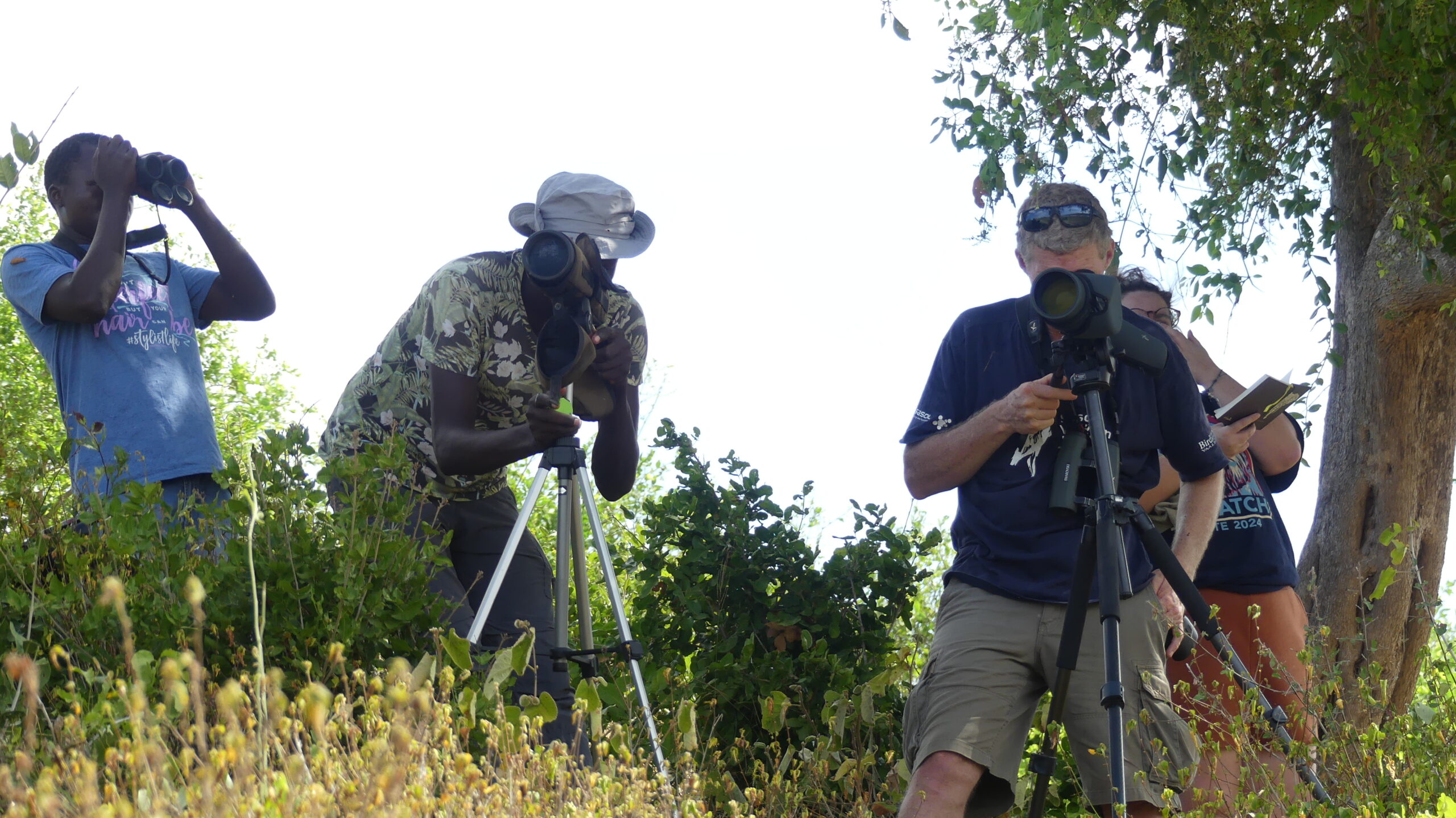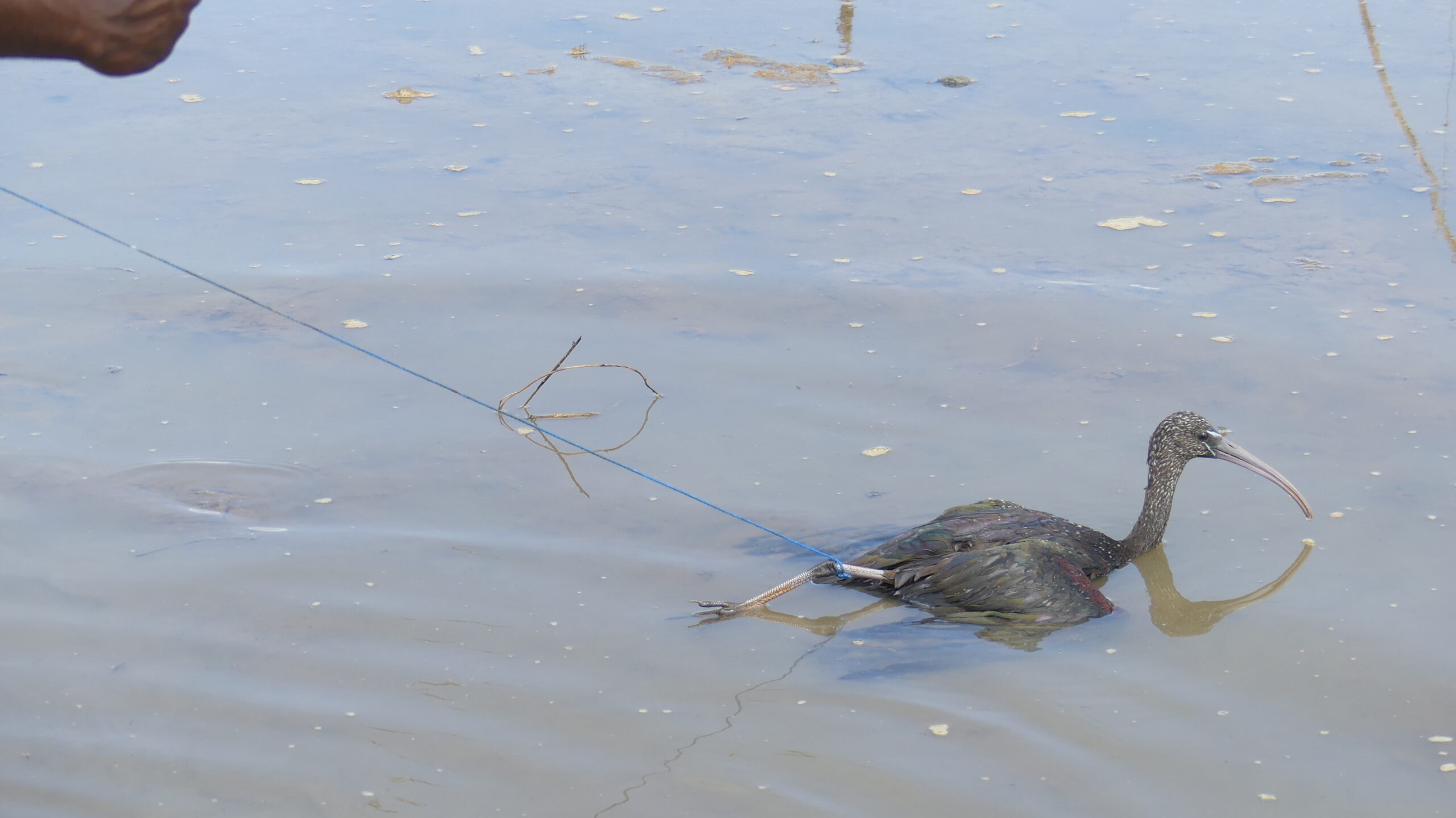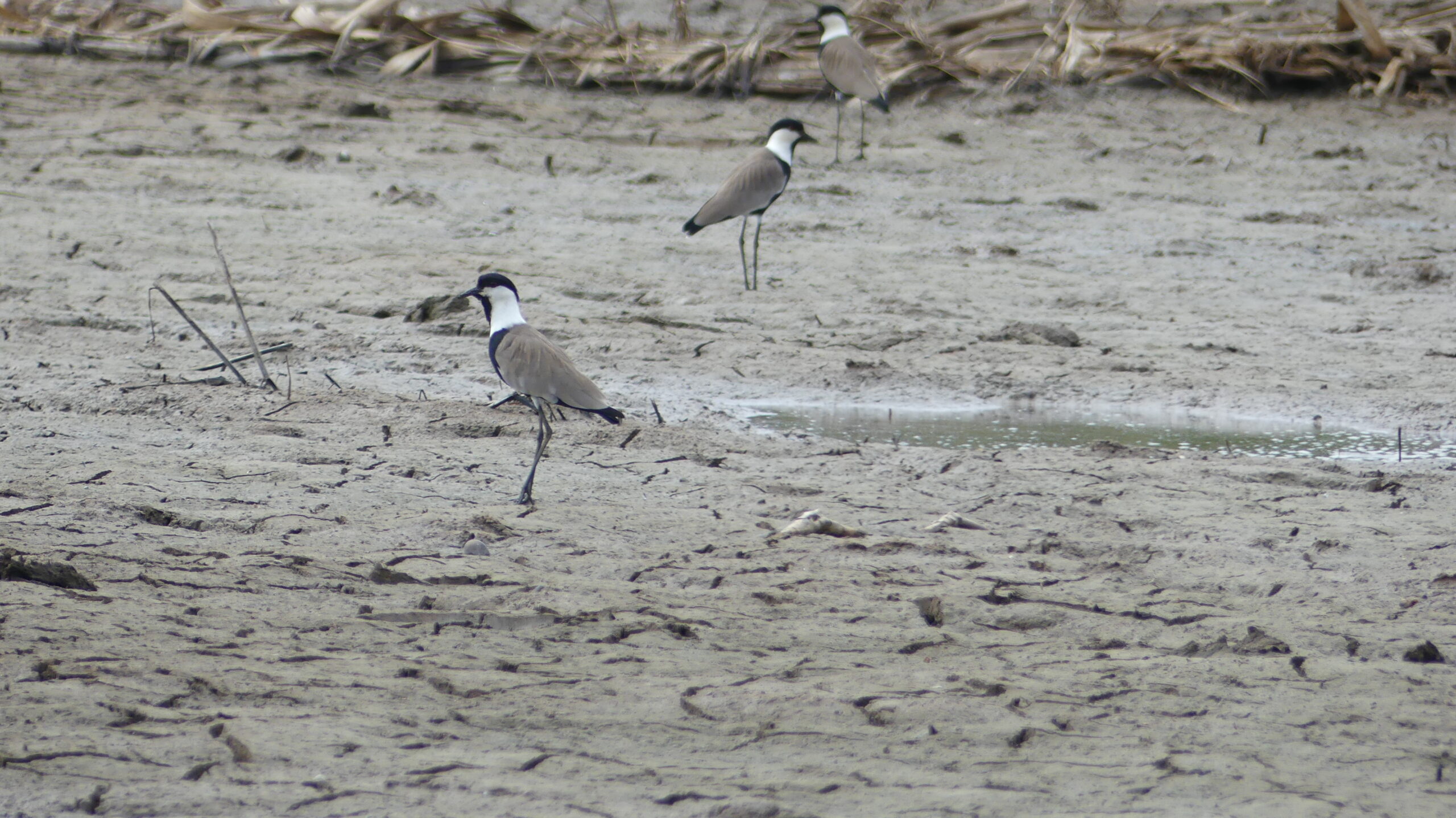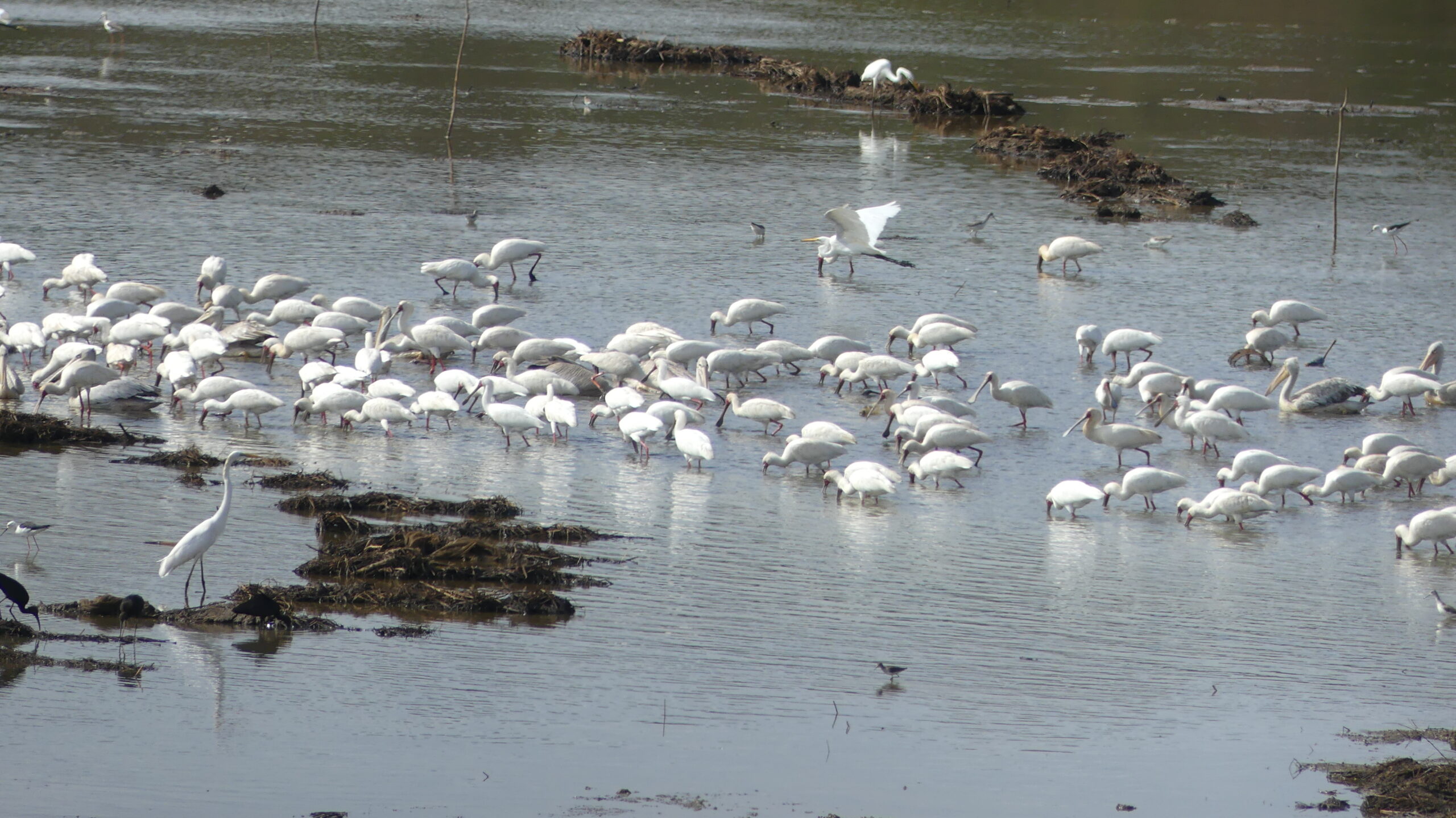Introduction
One of the major highlights of the year for the science department is the annual water bird counts. This year’s count happened on 3rd and 4th of February. However, the wet areas continue drying up, with every year worse than the one before…another effect of climate change? Here is a summary of the 2023 counts as compiled by one of our volunteers.

Lake Jilore
On February 3rd, 2023, a group of us from A Rocha Kenya headed to different locations to do wader counts that were to be submitted for the national bird count data. We left early in the morning and were out all day driving around with our binoculars and birding telescopes. I offered to be the scribe for one of the group, which I soon realized was a very important task. I had never taken part in a bird count before and was very excited to see what the day would entail.
We first arrived at lake Jilore in Kilifi County and we were shocked to see how dried up the water was. I was told that years before the lake was triple the size. We went on a walk down the hill towards the water. It seemed far in the heat and all around us the dirt was cracking from the warm temperatures. Once we arrived at the water, we were pleasantly surprised to see large groups of birds. We saw birds from Little stints, Glossy ibis, Greenshanks, Sandpipers among others. While we were observing the birds, Colin noticed that there were bird snares along the back coast of the lake. We counted 13 illegally placed snares and noticed that there was a Glossy ibis caught by the foot. Not only is there the issue of bird snares, there is also the concern of overfishing.

Elephant water hole in Arabuko-Sokoke Forest
From Lake Jilore we headed down to Lake Mbaratum which was completely dry with no water birds in sight! From here, we went to the Elephant water hole in Arabuko-Sokoke reserve. By this time, it was around lunch time and quite warm so that could have explained as to why we didn’t see as many water birds. The watering hole was also so small, hard to even see from the road. We stood there for about 10 minutes without seeing any birds. We were all watching very intentionally and we did end up seeing about 5 different bird species. Species such as the Little stint and the Black tip white tern.
Lake Chemchem
By the time we got to Lake Chemchem, it was very hot, clear and sunny. The habitat contained trees and shrubs. Surrounding hills appeared slightly eroded with no much trees or shrub cover. The bottom of the lake contained dry dark silt with dry snail and mussels scattered. No water was on sight. Tall grass scattered all over the dried lake. People were observed burning charcoal near the lake’s shore while others were grazing towards the far north end. Since the water had dried up there was a smaller number of water birds present.

Malindi Harbor
Our final stop that day was the Malindi harbor area next to the Vasco da Gama pillar. The weather was hot, humid and clear. There were less birds at shore at first as many birds were out in the small “islands” formed because of the low tide. We started by counting the few herons, plovers and sandpipers at shore. We later advanced towards the northern side of the beach as the water started coming back, the birds began flocking at shore which made it easier to count.
The shore looked less disturbed with few fishermen. There were a lot of water birds around, species of terns, plovers, ibis, whimbrels among others.
Conclusion
Numbers don’t lie, and this year’s numbers didn’t paint a really good picture. The effects of climate change that we have been merely talking about are finally catching up, steady and fast! With fewer wet areas comes fewer birds. Setting up bird traps on the few remaining areas just makes matters worse.
Even though the wet areas keep reducing with every successive year, we are glad we got to do this count. With the results we found, we can now assess and see where we need to put in more efforts and who we need to involve. I believe it is time to change the “we need to start doing something about this” to “we are doing something about this”!
